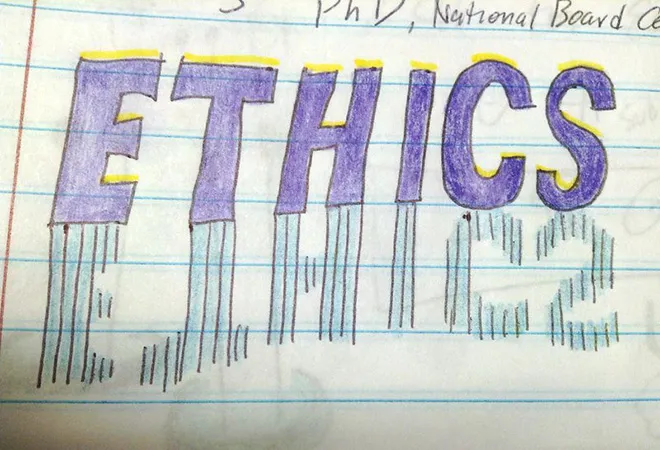 This article is part of the series — Tech in the New Decade.
This article is part of the series — Tech in the New Decade.
The most important trend for the next decade won’t be any one technology — it will be
digital trust. More innovative technologies, being implemented at an ever-fast pace, will be the norm for the next several years and possibly for our lifetimes. This is near inevitable. The open question is whether all these technologies will be deployed responsibly and whether leaders and innovators have the courage and foresight to build security, equality, and responsibility into the new technological world. The technological inclination of the next decade had better be towards digital trust, or we are all in for a much darker future.
As more powerful AI and machine learning tools become more widely available — as improved robotics replace and augment human work — and as we continue to unlock the power of biology, chemistry and physics to shape ourselves and our world, changes will build on each other to create a world that looks more like science fiction than our history.
The technological inclination of the next decade had better be towards digital trust, or we are all in for a much darker future.
All these changes, seemingly combined into an all-encompassing phenomenon sometimes called the “
Fourth Industrial Revolution,” represent a destabilising force on societies and economies. From
business to
social interactions, from our
psychology to
international relations, no one has escaped this impact. Even
democracy itself may become
destabilised by our new technologies. As we stand on the threshold of a new decade, we worry that all this innovation may be causing more harm than good — exacerbating
inequality, fomenting conflict, and
concentrating power into fewer and fewer hands. Drawing a line from the near past highlights a disturbing trend ahead, unless we make it a priority to use technology responsibly to build a better world.
The way we make beneficial use of technology a priority is by insisting that all innovators, governments, businesses and individuals adhere to the concepts of digital trust. That means ensuring security in new technologies as a baseline requirement. The vulnerabilities of digital technologies can no longer be treated as
externalities to be passed on to end-users and citizens, who are the least capable of protecting themselves from others’ mistakes and cut corners. Technologies that leave us more vulnerable post-implementation are a dead end.
The vulnerabilities of digital technologies can no longer be treated as externalities to be passed on to end-users and citizens.
Without security, we can’t have sustainable technological progress because new technologies will increasingly be rejected by an ever-more-paranoid population — and rightfully so. We can have an innovation that ensures individual safety as well as the security of companies and our most vital institutions. This will require new ways of
planning for
cyber resilience, new visions for
leadership, and new
mechanisms for
cooperation. Even so, cybersecurity alone is only half the answer.
Just as we must commit to security-by-design principles in order to ensure continued innovation, we need to commit to ethical and responsible use of technology. The norms, values, and agreements that represent our social contracts and structures need to be instilled into new technologies as well. For example, if artificial intelligence is used to
discriminate against the poor or against ethnic or racial minorities, it does not matter how secure against outside intrusion it is. Automation that
turns workers out of their jobs without a social safety net is likewise no positive innovation, regardless of how safe or efficient it is. Data harvesting that
eradicates individual privacy, whether to create new medicines or pad a social media company’s bottom line, is tempting a severe backlash. If technology is to serve humankind (and I argue that’s exactly its purpose) then it needs to be subject to human values and implemented to further our collective wellbeing or it can never be trusted.
The norms, values, and agreements that represent our social contracts and structures need to be instilled into new technologies as well.
In the midst of a pandemic and global economic crisis; in the middle of the apparent resurgence of hateful ideologies around the world; in a year where we are facing unprecedented attacks on our digital infrastructure; and at a time where hoarded wealth has reached obscene proportions, we find ourselves at an inflection point.
Here is where our decisions shape the next decade. We can decide to keep as we are, hoping that some miracle tech will change the narrative and, by itself, halt these vicious cycles. Or, we can decide to use innovation to improve the lives of the greatest possible number of people, to govern new technologies more responsibly, to provide access to education and technological tools more widely, and to build digital trust into the technologies of the future. In the 2020s, we will be defined by our choices.
The views expressed above belong to the author(s). ORF research and analyses now available on Telegram! Click here to access our curated content — blogs, longforms and interviews.
 This article is part of the series — Tech in the New Decade.
This article is part of the series — Tech in the New Decade.
